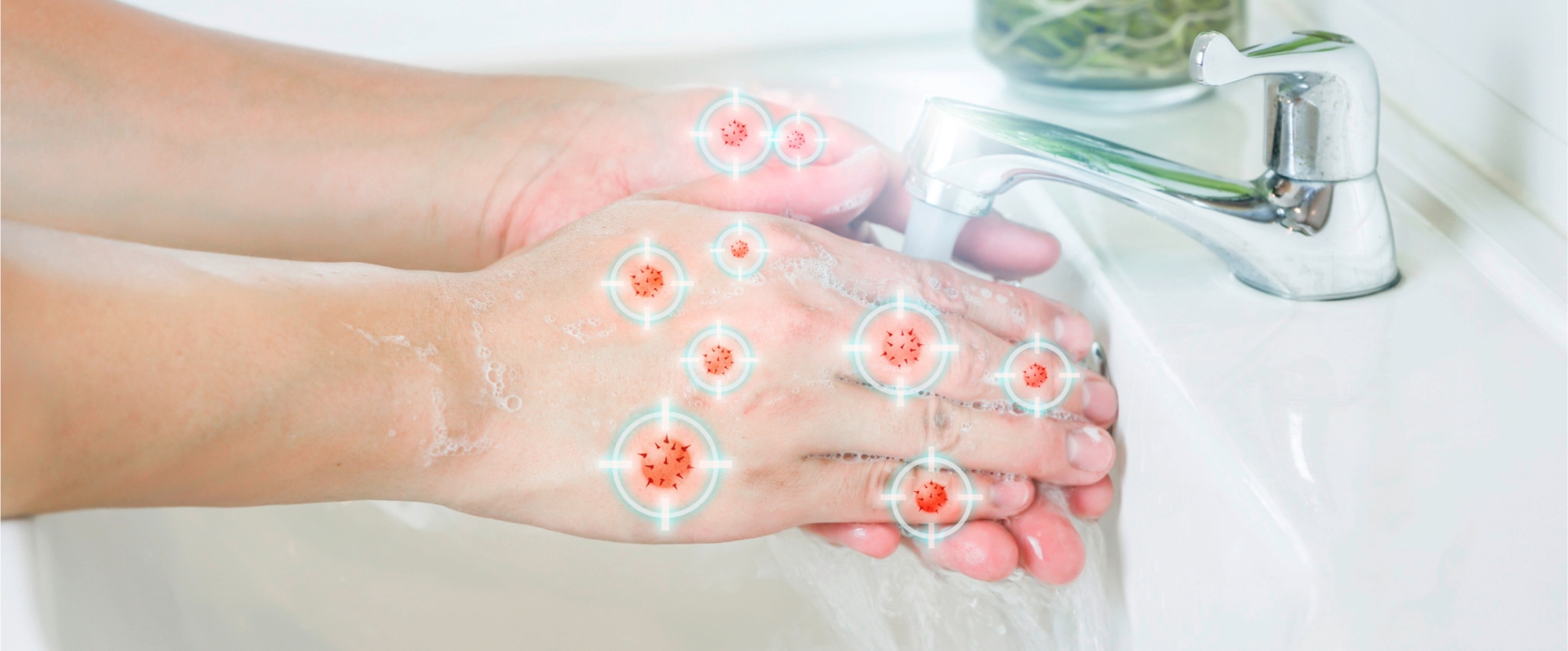Importance of handwashing with soap in the fight against COVID-19
Proper handwashing is a crucial tactic to prevent viruses like the COVID–19 (Coronavirus) from spreading. Public safety measures outlined by healthcare institutions and the World Health Organization suggest that regular handwashing and sanitizing are primary interventions in the fight against the spread of the virus.
Lifebuoy understands the power of handwashing with soap, to help prevent the spread of infections such as COVID-19. Here is a handwashing guideline to help you ensure that you and your family keep your hands clean and free from germs.
Why is it important to wash your hands?
People often touch their eyes, nose, and mouth without even noticing it. The trouble is the germs that make us sick use the eyes, nose and mouth as a way to get into our bodies. So, keep your hands germ protected by washing them as often as possible. Just remember, for handwashing to be truly effective, soaps, disinfectants, wipes, gels and creams are the best tools.
How to wash your hands properly
There is a correct way to wash your hands. It's simple, and it's one of the most successful options to prevent the spread of germs such as the Coronavirus.
When washing your hands, there are five things to remember:
1. Wet your hands with clean, running water and apply soap.
2. Lather up your hands, rubbing them together with a good hygiene soap. Don't forget to include your wrists, the backs of your hands, between your fingers, and under your nails.
3. Wash your hands while you hum the "Happy Birthday" song from beginning to end twice.
4. Rinse your hands thoroughly with clean, running water.
5. Dry your hands using a clean fabric or paper towel.
When you can't use soap and water, you should use hand sanitizer to ensure proper hand hygiene.
When should you wash your hands?
When germs get onto hands and are not washed off, they can be passed from person to person and make you and other people sick.
We recommend that you wash your hands with soap on these five essential occasions; before breakfast, lunch and dinner, after going to the toilet and while having a bath or shower.
However, when there is an illness such as the Coronavirus going around, other additional important occasions include; after being around large groups of people such as gatherings, shopping centres and airports, or potentially ill people and in places where germs could quickly spread such as hospitals or doctors' rooms.
You should also wash your hands after coughing or sneezing, when caring for the sick, before, during and after preparing food, touching surfaces that many people have touched, when your hands are visibly dirty and after handling animals or animal waste. Remember you should always try to cough or sneeze into your elbow or into a tissue – not onto your hands.
What else do you need to know to stay healthy?
We encourage South Africans to remember this simple F.I.G.H.T. guide:
- F: frequent handwashing with soap
- I: instant germ-protection with alcohol-based hand sanitizer when out of home
- G: go to the doctor when you have a cold, cough or fever
- H: home rest if you are feeling unwell - even if you are working from home and/or on lockdown
- T: tissues and masks should be used when you cough or sneeze
If you would like further assistance, the National Institute for Communicable Diseases (N.I.C.D.) has a toll-free number for the public that deals with Covid-19 questions: 0800 029 999.
If you think you or a loved one may be infected here is the list of hospitals handling cases of Coronavirus:
- Limpopo: Polokwane Hospital
- Mpumalanga: Rob Ferreira Hospital
- Gauteng: Charlotte Maxeke Hospital, Steve Biko Hospital, Tembisa Hospital
- KwaZulu Natal: Grey's Hospital
- North West: Klerksdorp Hospital
- Northern Cape: Kimberley Hospital
- Free State: Pelonomi Hospital
- Eastern Cape: Livingstone Hospital
- Western Cape: Tygerberg Hospital
Clean hands save lives by helping to prevent illness and the spread of diseases. Choose Lifebuoy soap as your trusted partner in health and hygiene. For further guidelines visit our Facebook page.

